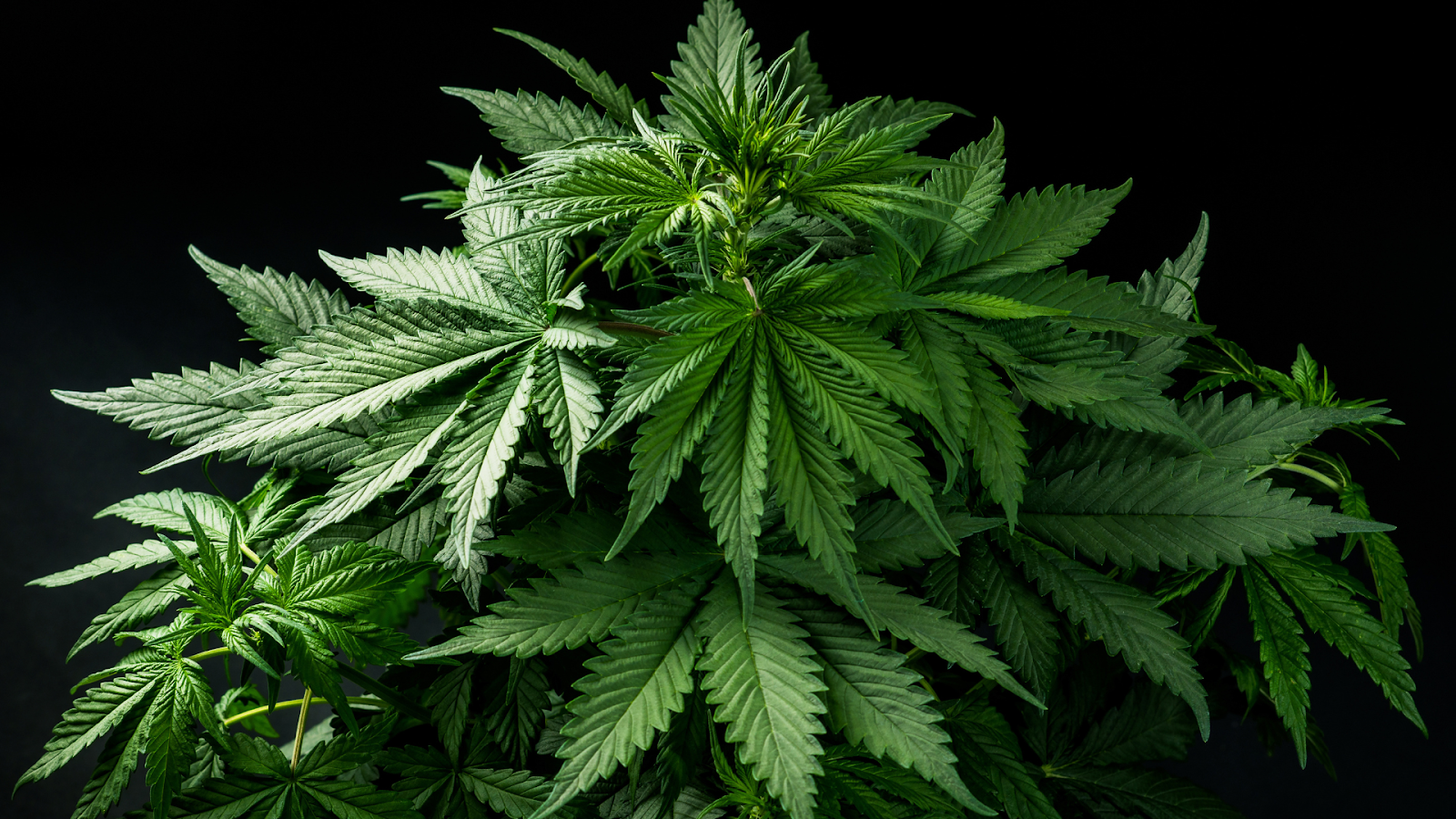Key Takeaways:
- THCO, a synthetic cannabinoid, offers a more intense experience due to its higher potency, which is several times that of THC.
- Both compounds face varying legal restrictions, with THC being widely regulated and THCO existing in a legal gray area in many places.
- Due to the differences in potency and effects, users should approach THCO with caution, starting with low doses and being aware of the potential for more pronounced side effects compared to THC.
The world of cannabis and its derivatives is ever-expanding, with new compounds being explored for their unique effects and potential benefits. Among the plethora of cannabinoids, THC (Tetrahydrocannabinol) has long been the most well-known for its psychoactive properties that produce the "high" associated with marijuana. However, a newer compound, THCO (Tetrahydrocannabinol acetate), has entered the scene, sparking interest and curiosity due to its distinct characteristics and potency. Understanding the differences between THCO and THC is crucial for consumers and enthusiasts alike, as each offers a different experience and set of effects. This article aims to demystify these two compounds, comparing their chemical structures, effects, legal status, and more to provide a comprehensive overview of THCO vs. THC.
Our CBD treats are carefully created by healthcare experts using premium, organic hemp. Explore our range of vital CBD wellness products and savor the delight of our delicious gummies and daily supplements. The opportune time has arrived to indulge in the goodness of CBD!
Discover Wellness with SOUL
Take action towards a thriving, balanced life today. Explore SOUL's Collection and uncover the perfect complement to your wellness journey. Let's explore the path to vitality together — a balanced, enriched life awaits. |
What is THC?
Tetrahydrocannabinol, commonly known as THC, is the most famous cannabinoid found in cannabis plants. It's primarily responsible for the psychoactive effects that marijuana is known for, such as euphoria, relaxation, and altered senses. THC works by binding to cannabinoid receptors in the brain and nervous system, which influences a range of mental and physical processes including mood, memory, and pain sensation.
What is THCO?
THCO, or Tetrahydrocannabinol acetate, is a synthetic cannabinoid derived from THC. It's often referred to as THC acetate ester and is considered to be a more potent analog of THC. The process of creating THCO involves adding acetic anhydride to THC, which enhances its potency and effects. This compound is relatively new to the cannabis market and is gaining attention for its strength, which is reported to be several times more potent than standard THC.
The Chemical Differences Between THCO and THC
THCO and THC might look alike since THCO comes from THC, but a big chemical difference changes how they work in the body. THCO has an extra acetate group, not in THC, making it more fat-soluble. This means THCO can get into the bloodstream and across the blood-brain barrier easier than THC, possibly leading to stronger and longer-lasting effects. This change might also make THCO break down differently in the body, but we still need more studies to understand this fully. The added acetate group makes THCO more potent, which also affects its legal status and safety. People interested in THCO should be well-informed about its stronger effects and the current lack of research on its safety.
The Various Benefits Of THC
Tetrahydrocannabinol (THC) is the psychoactive compound found in cannabis that is responsible for most of the plant's psychological effects. While THC is often recognized for its recreational use, it also has several medicinal and therapeutic benefits. Here are some of the key benefits associated with THC:

- Pain Relief - THC has been found to be effective in relieving chronic pain. It works by binding to cannabinoid receptors in the brain and nervous system, reducing the perception of pain.
- Improved Sleep - THC can help individuals suffering from sleep disorders, such as insomnia, by promoting relaxation and helping to regulate the sleep cycle.
- Appetite Stimulation - THC is known to increase appetite, which can be beneficial for individuals experiencing weight loss or lack of appetit.
- Nausea and Vomiting Reduction - THC has antiemetic properties, making it useful in reducing nausea and vomiting, especially when these symptoms are side effects of chemotherapy.
- Anxiety and Stress Reduction - In low doses, THC can reduce anxiety and stress. It can promote relaxation and help individuals feel more at ease.
- Symptom Relief for Neurological and Mental Health Conditions- THC has been shown to provide symptom relief for various neurological and mental health conditions. It can help reduce muscle spasticity, tremors, and anxiety related to these conditions.
- Anti-inflammatory Properties - THC has anti-inflammatory effects, which can benefit individuals with conditions like Crohn's disease and rheumatoid arthritis.
Potential Benefits Of THCO
Tetrahydrocannabinol acetate ester (THCO or THC-O acetate) is a synthetic cannabinoid derivative that is often described as being more potent than traditional THC. It's created through a chemical process that modifies THC extracted from the cannabis plant, resulting in a compound that has unique properties and effects. Because of its synthetic nature and potency, THCO is relatively new to the consumer market, and there is limited scientific research on its effects and safety profile. However, some potential benefits have been suggested based on anecdotal evidence and the known effects of THC. These include:
- Enhanced Potency and Efficacy - THCO is reported to be significantly more potent than standard THC, which could potentially make it more effective in smaller doses for managing pain, nausea, and other symptoms for which THC is traditionally used.
- Longer-Lasting Effects - Anecdotal reports suggest that the effects of THCO last longer than those of traditional THC, which could be beneficial for individuals seeking sustained symptom relief.
- Potential for Therapeutic Use - Similar to THC, THCO might offer therapeutic benefits such as pain relief, appetite stimulation, and anxiety reduction. Its increased potency could potentially make it a more effective option for some individuals, although this would need to be balanced against the risk of increased side effects.
- Psychoactive Experiences - For those using cannabinoids for their psychoactive effects, THCO is reported to provide a more intense and possibly different qualitative experience than THC. This might appeal to individuals seeking a stronger or more profound psychoactive experience.

Legal Status and Availability
The laws and availability of THCO and THC differ greatly, depending on where you are. THC, known for its psychoactive effects, is illegal federally in the U.S., but some states allow its use for medical or fun purposes. Around the world, its legal status varies widely due to different drug laws and views on cannabis. THCO, a synthetic version of THC, falls into a legal grey area in the U.S. It's not directly banned, but it could be considered illegal under certain laws if used by people, because it's similar to THC, which is strictly controlled. Whether THCO is allowed might also change from one state to another. You can usually buy THC where it's legal, in specific stores. THCO might be easier to find online or in less regulated markets, but this raises questions about the quality and safety of these products. Anyone thinking about trying THCO or THC should really look into the laws in their area and where they're buying from to avoid legal trouble and ensure they're getting a safe product. With laws always changing, keeping up-to-date is key.
Final Thoughts
As the cannabis landscape continues to evolve, the emergence of compounds like THCO alongside well-known cannabinoids such as THC presents both opportunities and challenges. Understanding the differences between THCO and THC is essential for consumers navigating this complex market. While THC has been a cornerstone of cannabis consumption for its psychoactive effects and therapeutic benefits, THCO emerges as a potent alternative that offers a different, often more intense experience.
The distinctions between these two cannabinoids extend beyond their psychoactive effects to their chemical structure, legality, and safety profiles. Consumers must approach THCO with caution due to its higher potency and the limited research available on its long-term effects. Meanwhile, THC's effects, risks, and benefits are better understood, though its legal status continues to vary significantly across jurisdictions.
If you're looking for a high-quality CBD brand that prioritizes well-being and consistently delivers impressive outcomes, I highly recommend exploring the diverse selections provided by Soul. Dedicated to excellence, delightful flavors, and a range of wellness solutions, Soul emerges as the ideal option for those seeking a gratifying and efficient CBD experience.
Want to learn more? Check out or latest blogs:
- Melatonin Alternatives: Sleep Deeper With THC
- THC For Sleep: Does It Really Work?
- Microdosing THC 101: The Ultimate Guide To A Great Time
Frequently Asked Questions
Is THCO natural or synthetic?
THCO is a synthetic cannabinoid, derived from THC through a chemical process that adds an acetate group, enhancing its potency.
Can you build tolerance to THCO faster than THC?
Yes, due to its higher potency, users may build tolerance to THCO faster than THC, necessitating breaks to reset tolerance levels.
Are there any specific methods of consumption that are recommended for THCO?
Due to its potency, THCO is often consumed in very small doses, typically through vaping or tinctures, to allow for more precise dosing.
Does THCO affect drug testing in the same way as THC?
Yes, since THCO metabolizes into THC in the body, it can potentially affect drug tests in a similar manner to THC.
Is it legal to drive after consuming THCO or THC?
No, driving under the influence of THCO or THC is illegal and dangerous as both can impair judgment, coordination, and reaction times.
Can THCO or THC be used in conjunction with CBD for a balanced effect?
Yes, some users combine THCO or THC with CBD to mitigate some of the psychoactive effects and enhance therapeutic benefits, though dosing should be approached with caution.
Are there any known interactions between THCO/THC and other medications?
Both THCO and THC can interact with other medications, altering their effects. It's important to consult with a healthcare provider before combining them with other medications.
Can THCO be considered organic?
While THCO is derived from THC, which can be naturally extracted from cannabis plants, the process of converting THC to THCO is chemical, making THCO synthetic rather than organic.
How does the body metabolize THCO compared to THC?
The body metabolizes THCO into THC before it becomes active, which may result in a delayed onset of effects compared to direct THC consumption.
Are there any benefits of using THCO over THC?
Some users prefer THCO for its stronger and longer-lasting effects, especially if they seek a more intense experience or have high tolerance levels to THC.
Sources:
- Mack, A., & Joy, J. (2011). MARIJUANA AND PAIN. Nih.gov; National Academies Press (US). https://www.ncbi.nlm.nih.gov/books/NBK224384/
- Viana, M. de B., Aquino, P. E. A. de, Estadella, D., Ribeiro, D. A., & Viana, G. S. de B. (2022). Cannabis sativa and Cannabidiol: A Therapeutic Strategy for the Treatment of Neurodegenerative Diseases?. Medical Cannabis and Cannabinoids, 5(1), 207–219. https://doi.org/10.1159/000527335
- Lowe, D. J. E., Sasiadek, J. D., Coles, A. S., & George, T. P. (2018). Cannabis and mental illness: a review. European Archives of Psychiatry and Clinical Neuroscience, 269(1), 107–120. https://doi.org/10.1007/s00406-018-0970-7
- Huestis, M. A. (2020). Pharmacokinetics and metabolism of the cannabinoids. Handb Exp Pharmacol, 197, 1–24. https://pubmed.ncbi.nlm.nih.gov/16596792/
- Babson, K. A., Sottile, J., & Morra, L. (2017). Cannabis-induced psychosis and cannabinoid hyperemesis syndrome: Case reports and a review of the literature. J. Emerg Med, 52(2), 143–148. https://www.sciencedirect.com/science/article/pii/S1043661822002031
- Boehm, G. F., & Sheffner, D. R. (2005). Cannabis and drug interactions: A clinical update. Clin Pharmacokinet, 44(5), 437–456. https://www.mdpi.com/2077-0383/11/5/1154




